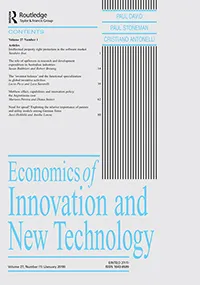Access to financial resources is crucial for young firms to strive. To foster innovation and growth in these firms, governments address financing constraints by initiating public support programs. For such financial support to be effective, it is, however, important that firms be able to augment publicly provided resources with additional means. This study examines the relation between new ventures’ subsidy receipt and long-term bank loans. Studying new ventures founded between 2005 and 2009 in Germany, we test whether the subsidy itself facilitates access to bank loans. Applying econometric techniques that account for the endogenous nature of a subsidy receipt, we find that subsidized young firms are more likely to use bank loans and to have obtained a larger share of their financing mix from banks. We further show that this effect is stronger in highly information-opaque sectors. These results suggest that the effect may be attributed to an information value carried by the grant that is relevant to banks’ loan assessment procedures, especially when new venture value is difficult to judge.
Aktuelles
Forschung zum Zusammenhang von öffentlicher Förderung von jungen Unternehmen und Fremdkapitalfinanzierung erscheint in "Economics of Innovation and New Technology"
Publikationen |
